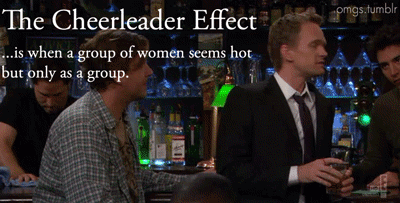In this article, I have compiled a list of “Top 20 Lesser Known Psychological Effects” that I am sure you have encountered once in your lifetime.
You might have experienced some psychological phenomenon but have no idea what they are called.
The 20 rare psychological effects that we are going to talk about in this article are:
- The Ben Franklin Effect
- Halo Effect
- Baader-Meinhof Phenomenon
- Mandela Effect
- Perry Mason Effect
- CSI Effect
- The Scully Effect
- The Dunning-Kruger Effect
- The Barnum Effect
- Bystander Effect
- The Lake Wobegon Effect
- Ringelmann Effect
- Zeigarnik Effect
- Well Travelled Road Effect
- Stockholm Syndrome
- Tamagotchi Effect
- Stroop Effect
- Rashomon Effect
- The Audience Effect
- The Cheerleader Effect
Let’s start the journey with a quote by Kurt Vonnegut which fits into the realm of psychology:
“We are what we pretend to be, so we must be careful about what we pretend to be.”
Table of Contents
- 1. Top 20 Lesser Known Psychological Effects
- 1.1 #1. The Ben Franklin Effect
- 1.2 #2. Halo Effect
- 1.3 #3. Baader-Meinhof Phenomenon
- 1.4 #4. Mandela Effect
- 1.5 #5. Perry Mason Effect
- 1.6 #6. CSI Effect
- 1.7 #7. The Scully Effect
- 1.8 #8. The Dunning-Kruger Effect
- 1.9 #9. The Barnum Effect
- 1.10 #10. Bystander Effect
- 1.11 #11. The Lake Wobegon Effect
- 1.12 #12. Ringelmann Effect
- 1.13 #13. Zeigarnik Effect
- 1.14 #14. Well Travelled Road Effect
- 1.15 #16. Tamagotchi Effect
- 1.16 #17. Stroop Effect
- 1.17 #18. Rashomon Effect
- 1.18 #19. The Audience Effect
- 1.19 #20. The Cheerleader Effect
- 2. Conclusion:
Top 20 Lesser Known Psychological Effects
#1. The Ben Franklin Effect
It is a psychological phenomenon that says:
When we do a favour to a person, as a result, we tend to like them more. This is because by helping someone, we justify our actions to ourselves that we did them a favour because we like them.
Benjamin Franklin himself states in his autobiography:
“He that has once done you a kindness will be more ready to do you another than he whom you yourself have obliged“.

If you want people to like you then just ask them for a favour. But make sure to not to return it immediately. On the contrary, if someone asks you for a favour, then watch out for feeling better about them.
#2. Halo Effect
It is a type of cognitive bias when one trait of a person or a thing is used to make an overall judgement of that person or thing.
This phenomenon occurs very often in our lives but we fail to notice it. For example, how many times we see an attractive person and our brain automatically presume that person to be a “good” person.
In reality, there is no connection between the looks and the character of a person. But no matter how shitty they are, our minds still find a way to make them appear to be decent human beings.
#3. Baader-Meinhof Phenomenon
The “Baader-Meinhof phenomenon” is an effect of sorts. It occurs when:
You encounter some information for the first time and then suddenly it seems to appear everywhere.
It is also known as frequency illusion. Two psychological processes are responsible for this phenomenon:
- Selective Attention – It is when you learn a new word, thing or idea and after that, your brain unconsciously looks for it everywhere. As a result, you will find it more often around you.
- Confirmation Bias – This occurs after Selective Attention. In this, after seeing it two or three times, you reassure yourself that yes, you are definitely seeing it more.
You will be surprised to know that this phenomenon is named after a militant West German terrorist group, active in the 1970s.
#4. Mandela Effect
Mandela Effect is also known as False Memory. It is a psychological phenomenon where:
People recollect something that actually did not happen.
The term “Mandela Effect” is coined by Paranormal Consultant and blogger Fiona Broome.
Nelson Mandela was a South African leader who died at the age of 95 in 2013. But she has a false memory of Nelson Mandela dying in the prison in the 1980s.
She also thought that her claim is shared by “maybe thousands” of other people.
People who believe in the Mandela Effect think that their false memory is a proof of the existence of the parallel universe.
According to them, whatever false memory they have is of those events that occurred in another reality and somehow intersected with their reality.
#5. Perry Mason Effect

Perry Mason is an American legal drama television series which is believed to have affected the USA’s legal system in a big way.
In the show, the clients of Mason are always portrayed as innocents and that they are wrongly convicted. In the end, Mason somehow compels the real culprit to break down and confess and save his client.
This has a very deep impact on the American legal system. Because Mason was shown as an idealistic lawyer who always devotes all his time and energy in a single case at a time. He goes out of the way to prove the innocence of his clients.
Basically whatever shown in the TV Show is for entertainment purpose but people start taking it seriously, thinking that this is how the legal system works in the USA which is not the case.
- Jurors who watched the show sometimes presumes that the defendant is innocent even if he is actually guilty.
- Sometimes, jurors put pressure on the defence attorney to make the real culprit confess in the court otherwise the defendant will be convicted. This happens because, in the show, Mason somehow compels the real culprit to confess in the witness box.
- Many defendants choose to appear pro se, i.e. they represent themselves in the court instead of a lawyer representing them. This happens due to the portrayal of court cases in an oversimplified manner. This causes the defendants to believe that they have understood the working of the legal system and they can represent themselves better than any lawyer could.
#6. CSI Effect
This psychological effect is named after American procedural forensics crime drama show “CSI: Crime Scene Investigation”. This show influences public perception due to the excessive use of forensics used to solve a case.
Basically what happens is, in the TV show forensics shown is remarkably advance (not so in reality). Thus, it raises the expectations of people towards forensics to find more and more scientific evidence.
It is believed that this made a huge impact on trial jurors as they start demanding more and more forensic evidence in a criminal trial. Thus making it difficult for the prosecutors to prosecute someone.
#7. The Scully Effect
This psychological effect is named after a fictional character named “Dana Katherine Scully” in the Fox science fiction-supernatural television series The X-Files. Scully is an FBI agent and a medical doctor (M.D.).
The character of Scully is believed to have inspired many young women to pursue careers in medicine, science and law enforcement. Due to this, there is a significant increase in the number of women joining these fields.
This happens solely because the character of Scully is of a strong independent woman who is also a doctor and an FBI Agent.
#8. The Dunning-Kruger Effect
The Dunning Kruger Effect is nothing but a cognitive bias. It occurs when:
People with very little knowledge on a topic tend to significantly overestimate themselves. On the contrary, more intelligent people tend to underestimate themselves.
It also occurs due to the misconception of people about something which they don’t know completely but thinks as if they are expert in it. One of the funniest examples of this is the criminal case of McArthur Wheeler.
He robbed several banks by covering his face with lemon juice thinking that this makes his face invisible to CCTV cameras. This misconception of his comes from the fact that lemon juice can be used to make invisible ink.
When we write something with lemon juice, it is basically invisible as the lemon juice is colourless. But when we heat that paper, the carbon compounds present in the lemon juice breaks down. The carbon released from these gets oxidised and thus, that invisible ink turns light or dark brown. It can go all the way down to black colour if oxidised for a longer period of time.
Wheeler thought that the same phenomenon also applies when he covered his face with lemon juice. This misconception occurs due to the lack of knowledge and lack of acknowledgement of one’s inability to recognize their lack of ability.
#9. The Barnum Effect
The Barnum Effect or Forer Effect was a term coined by psychologist Paul Meehl in 1956. It is a psychological phenomenon which occurs when:
People believe that the advice they received based on non – scientific knowledge (e.g. astrology, fortune telling, cartomancy etc) is specific to them but in reality, it is general and vague enough that it could apply to a wide variety of people.
Many psychologists believe that due to this effect, many people believe in pseudosciences and paranormal beliefs such as astrology, fortune telling, aura reading, and some types of personality tests.
#10. Bystander Effect
Let’s say some stranger needs your help. Now whether you help or not is less likely to depend on who you are as a person and more on how many people are there around you. In psychology, this phenomenon is known as “The Bystander Effect”. (Bystander simply means spectator)
Thus, it is a psychological phenomenon in which individuals are less likely to help someone due to the presence of other people.
This happens because when someone needs help, people in large groups tend to feel that they don’t need to do anything as someone else will take care of it.
This is probably one of the strangest psychological effects in the list of Top 20 Lesser Known Psychological Effects.
You might have seen this many times. People wanted to help but shy away from it due to the presence of other people.
MUST READ: 5 Shocking Accident Videos
#11. The Lake Wobegon Effect
Do you tend to overestimate yourself? If yes, then you might be affected by something called as Lake Wobegon Effect.
It is a natural tendency of human being to overestimate their achievements and capabilities in relation to others.
This term was coined by Professor David G Myers in honour of a fictional town in Minnesota named “Lake Wobegon”. It was created by Garrison Keillor to provide the setting for the long-term radio broadcast, Prairie Home Companion.
In this town, all of the women are strong, all of the men are good-looking, and all of the children are above average. Myers used this town to describe the common human tendency to believe that they are superior to others.
People tend to believe that they are above average even if they are not. In a survey of high school students, only 2% of the students actually think that they have below average leadership qualities.
#12. Ringelmann Effect
This is one of the most seen and examined psychological effects in our list of Top 20 Lesser Known Psychological Effects.
It is the tendency of people to operate with less efficiency while working in a group. This effect was discovered by French agricultural engineer Maximilien Ringelmann. According to Ringelmann Effect:
Individuals in a group tend to become less productive as the size of group increases.
Thus we can say that the number of individuals in a group is inversely proportional to the productivity of individual members in that group.
This decrease in productivity occurs due to two reasons:
- Motivation Loss or Social Loafing
- Loss of coordination
#13. Zeigarnik Effect

You might have seen that we tend to remember our incomplete tasks more than the finished ones. In psychology, this phenomenon is known as Zeigarnik Effect. According to this phenomenon:
A person remember interrupted or incomplete tasks or events more easily than tasks that have been completed.
It was founded by Russian psychiatrist and psychologist Bluma Wulfovna Zeigarnik.
Once in a restaurant, she observed that waiters keep track of complex and unpaid orders. But after the order is complete and paid, they failed to recall the detailed information about the orders.
This usually occurs due to the cognitive tension regarding the incomplete tasks which makes it impossible for us to forget about it. But once the task is completed, internal tension releases and we tend to forget about the details.
#14. Well Travelled Road Effect
You might not have heard of this. But this is one of those psychological phenomena in our list of Top 20 Lesser Known Psychological Effects, that almost everyone has experienced.
It is a cognitive bias in which travellers tend to miscalculate the time taken to traverse routes depending on the familiarity of the route.
Usually, people tend to underestimate the time taken to traverse a familiar route. On the contrary, if the route is unfamiliar, they tend to believe that it will take longer.
This happens because when the route is unfamiliar, one tends to focus on new landscapes, landmarks etc. This newness engages the attention of the traveller which makes him think that the trip has taken more time than it actually has.
On the other hand, if the route is familiar, we don’t usually focus on the surroundings as we are familiar with it. This gives a false impression that the trip has taken less time than it actually has.
It is because of this phenomenon, we tend to get late on the familiar routes as we underestimate the time it takes to cover the distance.
15. Stockholm Syndrome
It is named after a bank robbery in Stockholm, Sweden in 1973. In this robbery, four people were held as hostages. When these hostages were released, they defended their captors and refused to testify in court against them.
Thus Stockholm Syndrome is the condition when hostages develop a feeling of trust and affection towards their captor.
According to psychologists, this bond is created when the captor threatens to kill the hostages and then choose not to kill them.
This creates a sense of relief among the hostages. They feel gratitude towards the captor for giving him or her life.
#16. Tamagotchi Effect
It is a psychological phenomenon in which people become emotionally attached to a machine or other digital objects.
It is named after a Japanese toy, Tamagotchi which was released in 1996. Tamagotchi is an egg-shaped handheld virtual pet. It became so popular that as of 2010 more than 76 million Tamagotchi have been sold worldwide.
Usually, humans get attached to devices that shows Artificial Intelligence and can mimic human emotions and personality.
Anybody can experience this attachment irrespective of their age. But it is more likely to be found in people who have trouble communicating with other people.
MUST READ: Will Artificial Intelligence (AI) destroy human existence in future?
#17. Stroop Effect
Stroop Effect is one of the well known psychological phenomena in our list of Top 20 Lesser Known Psychological Effects.
It refers to the slow response of the people in identifying colours when the colour of the word is different from the name of the word.
It was named after the American psychologist John Ridley Stroop who first described it during the 1930s.
#18. Rashomon Effect
This effect is named after 1950 film, Rashomon. In this film, a murder is described in four mutually conflicting ways by its four witnesses.
Thus Rashomon Effect occurs when different people have conflicting description of the same event.
It usually occurs when there is no satisfactory evidence available to promote or discard any version of the truth.
#19. The Audience Effect
The Audience Effect refers to the tendency of the people to perform differently in front of the audience than when alone.
It is also known as Social Facilitation. It was found that a person would perform simple tasks better and more accurately in front of an audience than when alone. On the other hand, he/she would do worse when performing a complex task in front of an audience than when alone.
#20. The Cheerleader Effect
It is a cognitive bias in which people tend to believe that individuals are attractive only when they are in a group.
This term was first coined by the character named “Barney” in a TV Show named “How I Met Your Mother”. At first, he finds a group of female friends attractive but after examining them individually, they all seem to be very ugly.
Conclusion:
So there you have 20 lesser known psychological effects.
Now, I want to hear from you:
Which of the above psychological effects fascinates you?
Let me know a quick comment below.
Also if you want similar content weekly then please subscribe to our newsletter.
MUST READ: 8 Practical Ways that actually work to look more attractive instantly
Sources:
Pacific Standard
Reddit
HowStuffWorks
Wikipedia
Good Therapy
Lifespan – Standford
Alleydog



























